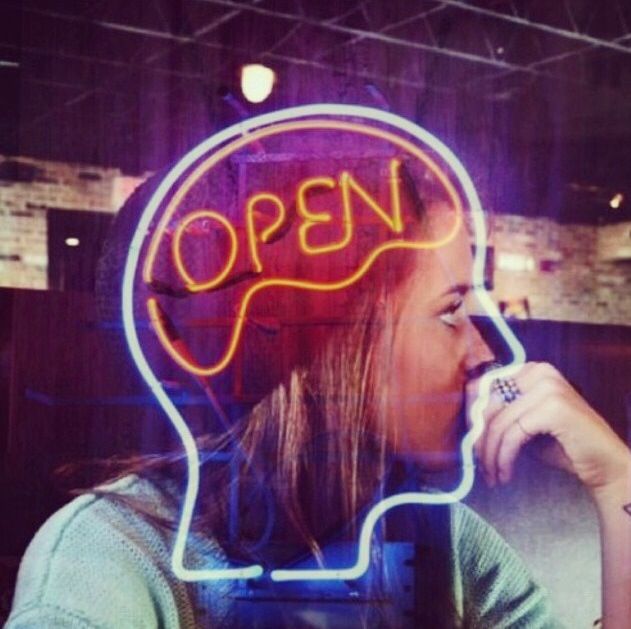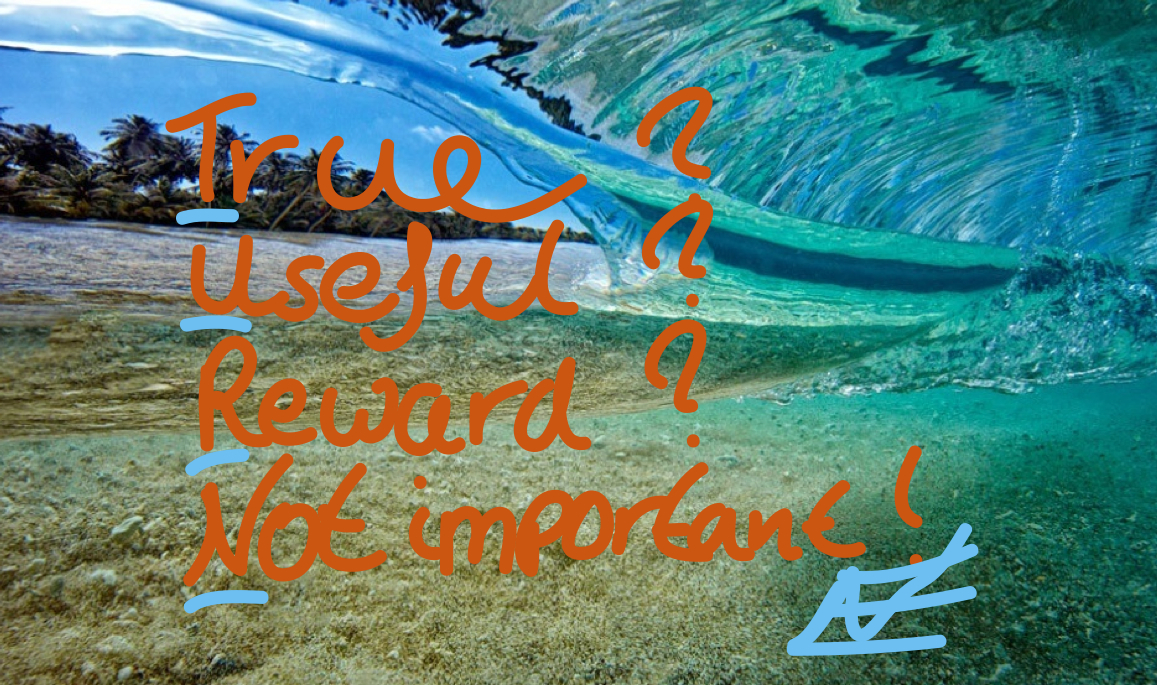Open-Mindedness: A 4-Step Checklist.

{via OrganiZen on Pinterest}
Never underestimate the capacity for not seeing the whole picture, no matter the circumstance.
However much things appear to be just so, it pays to leave a little space for another reality to be also true, truer, or more beneficial. Especially hard when we are attached to the outcome or the way we perceive a situation, but when circumstances are different to what we expect, or what we wish to experience, reason and logic goes overboard and our response is driven from the deeper survival instincts we have.
Obviously this doesn’t leave much space for seeing alternatives as we instinctively do what we have always done to survive this situation, physically, and socially.
This is the Leopard Spots Syndrome. However, with enough practice you may be able to tweak and tinker some of your spots.
T.U.R.N. A 4-Step Open-Mind Checklist
TURN around your thinking:
TRUE OR NOT
(WILL HAPPEN/MAY NOT HAPPEN?)
USEFUL?
REWARD?
NOT IMPORTANT!
When something happens to which you have an undesired emotional and/or behavioral response:
Notice what kind of undesired emotion or behavior is happening.
Notice what kind of thinking is happening, or what kind of thinking has led to the undesired response.
Now evaluate how likely this kind of thinking is to be true or is likely to happen?
Is there a possibility that it is not (completely) true or that it will not happen?
How useful is it for you to think like this right now?
Consider the opposite of your conclusion/assumption/ expectation, etc.
What is your reward (positive or negative) when you think, feel or act like that?
Consider the origin of your thought to be irrelevant, not important or accidental.
What kind of thinking puts you in a position that enables you to achieve your goals, aspirations and dreams?
What kind of thinking is required to get the most out of this situation?
What kind of behavior is required to get the most out of this situation?
What kind of effort is required to get the most out of this situation?
THE THOUGHT-RESPONSE EXERCISE:
1. How true is it?
2. Is there a possibility that it is not true? (Even if it is only marginally)
3. Is it likely to happen?
4. Is there a possibility that it is not going to happen? (Even a small chance still needs to be acknowledged here)
5. How useful is it to think like this? (If it makes you feel bad, does it set you up for positive action?)
6. What is my reward? (Sometimes it helps to acknowledge the reward, even with a “thank you reward for being there for so long, I now no longer need you, Goodbye!”)
7. Label the thought and or event as not important or irrelevant (to your well-being)
This exercise takes time, behavior is only replaced with behavior. It may be tricky to keep a level enough head to do it at first, however, just like all things that are hard to learn, overcoming these hurdles is a liberating and joyous experience.
Happy T.U.R.N.ing.
***
Bartholomeus Nicolaas Engelbertus is a change-ninja and anti-fragilist who developed The Natural Self System when he discovered that attachments to life roles limits change-readiness and anti-fragile thinking, thanks to surviving a near-death experience and a socioeconomic collapse, both of which provided the epiphany and insights on which these anthropological models of human development are based. He is a master NLP practitioner with over 10 years of coaching and training experience. He has organized talks, workshops and retreats, presenting his coaching and training to clients in the UK, Holland, Spain, USA, Canada, Mexico, and Australia. His work has been featured in The Saturday Times and MSN Extras, Rebelle Society, and The Inertia. He is passionate about healthy living, surfing, and a happy sustainable future for the world’s children. You can connect with Bartholomeus via his website or Facebook.
***
{Join us on Facebook, Twitter, Instagram & Pinterest}


